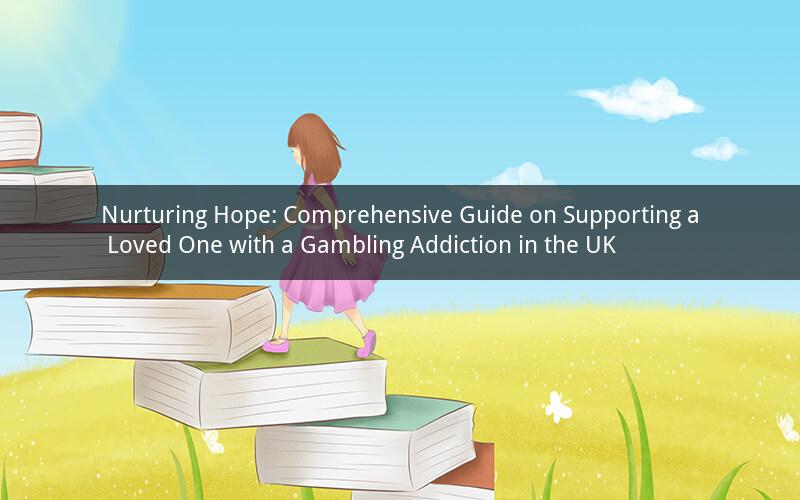
Supporting a loved one grappling with a gambling addiction can be a challenging yet rewarding endeavor. Understanding the intricacies of this addiction, recognizing the signs, and knowing how to provide effective support are essential steps towards aiding your loved one on their journey towards recovery. In the UK, numerous resources are available to assist individuals battling gambling addiction, and this guide will explore the most effective ways to support someone with a gambling addiction in the country.
Understanding Gambling Addiction
Gambling addiction, also known as compulsive gambling, is a disorder characterized by an inability to control the urge to gamble, despite harmful consequences. It is a mental health issue that can affect people from all walks of life. Understanding the nature of gambling addiction is the first step in supporting someone struggling with it.
Signs of a Gambling Addiction
Recognizing the signs of a gambling addiction is crucial in providing timely and effective support. Some common signs include:
1. Inability to control gambling behavior, despite repeated attempts to stop.
2. Preoccupation with gambling, even when not engaging in the activity.
3. Increased time spent on gambling activities, which can lead to neglecting other responsibilities and interests.
4. Financial problems due to excessive gambling, such as accumulating debt or missing payments.
5. Relationships strained due to gambling, such as arguments with family members or friends.
6. Engaging in risky behaviors, such as gambling without a budget or chasing losses.
Effective Ways to Support a Loved One with a Gambling Addiction
1. Educate Yourself about Gambling Addiction
To provide meaningful support, it is crucial to educate yourself about the nature of gambling addiction. Understanding the underlying causes, triggers, and consequences of the addiction can help you approach the situation with empathy and knowledge.
2. Encourage Them to Seek Professional Help
Professional help is a critical component in overcoming a gambling addiction. Encourage your loved one to seek treatment from a qualified therapist or counselor specializing in gambling addiction. In the UK, several organizations offer support and treatment services for individuals with gambling problems.
3. Be Empathetic and Non-judgmental
Approach your loved one with empathy and without judgment. Remember that they are not responsible for their addiction and that it is a mental health issue, not a personal flaw. Showing understanding and compassion can make your loved one more receptive to your support.
4. Create a Safe Environment
Supporting someone with a gambling addiction means creating a safe and non-judgmental environment. Avoid lectures or confrontations about their gambling habits. Instead, focus on building trust and offering a listening ear.
5. Help Them Develop a Budget and Financial Management Skills
Gambling addiction often leads to financial turmoil. Assist your loved one in creating a budget and teaching them financial management skills. This can help them regain control over their finances and reduce the temptation to gamble.
6. Encourage Participation in Support Groups
Support groups can be an invaluable resource for individuals struggling with gambling addiction. Encourage your loved one to join a support group where they can share their experiences, learn from others, and gain valuable insights into recovery.
7. Stay Informed about Available Resources
The UK offers a range of resources and support services for individuals with gambling addiction. Stay informed about these resources and be ready to offer guidance to your loved one.
8. Take Care of Yourself
Supporting someone with a gambling addiction can be emotionally and physically taxing. Ensure that you take care of yourself by seeking support from friends, family, or professionals when needed.
Frequently Asked Questions
Q1: Can a person recover from a gambling addiction?
A1: Yes, recovery from a gambling addiction is possible with the right support, treatment, and commitment from the individual struggling with the addiction.
Q2: Is it my fault if my loved one has a gambling addiction?
A2: No, you are not responsible for your loved one's gambling addiction. It is essential to understand that addiction is a mental health issue, and it is not the result of anyone's actions or failures.
Q3: What should I do if my loved one refuses to seek help?
A3: Encourage your loved one to seek help through gentle conversations and by highlighting the benefits of treatment. If they remain resistant, offer your support in finding a professional who can help them.
Q4: Can gambling addiction affect children or teenagers?
A4: Yes, gambling addiction can affect individuals of all ages, including children and teenagers. Early intervention is crucial to prevent the escalation of the addiction and its negative consequences.
Q5: Are there any medications available to treat gambling addiction?
A5: While there are no specific medications for treating gambling addiction, some individuals may benefit from medications that address underlying mental health issues, such as depression or anxiety, which can contribute to gambling addiction. It is essential to consult with a healthcare professional for personalized treatment options.
In conclusion, supporting a loved one with a gambling addiction in the UK requires empathy, education, and a willingness to provide consistent and unconditional support. By understanding the nature of the addiction, recognizing the signs, and seeking appropriate resources, you can help your loved one on their journey towards recovery.